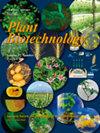An improved anther culture procedure for obtaining new commercial Mediterranean temperate japonica rice (Oryza sativa) genotypes.
IF 1.4
4区 生物学
Q4 BIOTECHNOLOGY & APPLIED MICROBIOLOGY
引用次数: 7
Abstract
Rice is one of the greatest calorie supply for the world population, especially since its production is almost entirely destined to direct human consumption and its demand will increase along with the world population. There are efforts worldwide to increase rice yields by obtaining new improved and stabilized rice lines. The rice anther culture, a fast and cheap technique, allows to obtain double haploid lines in less than one year. We report its application with an improved protocol in four Mediterranean japonica rice genotypes at F2 generation. We performed a screening test for cold-pretreatment at 5.0±0.1°C and concluded that the optimum duration was 9 days as it produced the higher rate of anther-derived callus induction. This revised protocol was successfully applied to the four genotypes, obtaining good results in all the procedure's steps. At the end, more than 100 of double haploid green plants were generated. Moreover, 9 lines obtained from the anther culture procedure showed good qualities for the Spanish market at the growing, farming and grain production level during the field assays. Therefore, we report an improved anther culture procedure for obtaining double haploid lines from temperate japonica rice genotypes showing high commercialization expectance.用于获得新的商业地中海温带粳稻(Oryza sativa)基因型的改良花药培养程序。
大米是世界人口最大的卡路里供应之一,特别是因为它的生产几乎完全是为了直接供人类消费,它的需求将随着世界人口的增加而增加。全世界都在努力通过获得新的改良和稳定的水稻品系来提高水稻产量。水稻花药培养是一种快速而廉价的技术,可以在不到一年的时间内获得双单倍体系。本文报道了其改良方案在4个地中海粳稻基因型F2代的应用。我们进行了5.0±0.1°C冷预处理的筛选试验,得出最佳处理时间为9天,其花药愈伤组织诱导率较高。修订后的方案成功地应用于四种基因型,在所有步骤中都获得了良好的结果。最终获得100多株双单倍体绿色植株。此外,从花药培养过程中获得的9个品系在种植、耕作和粮食生产水平上都表现出良好的品质,可供西班牙市场使用。因此,我们报告了一种改进的花药培养程序,从具有高商业化预期的温带粳稻基因型中获得双单倍体系。
本文章由计算机程序翻译,如有差异,请以英文原文为准。
求助全文
约1分钟内获得全文
求助全文
来源期刊

Plant Biotechnology
BIOTECHNOLOGY & APPLIED MICROBIOLOGY-PLANT SCIENCES
CiteScore
2.90
自引率
18.80%
发文量
45
审稿时长
6-12 weeks
期刊介绍:
Plant Biotechnology is an international, open-access, and online journal, published every three months by the Japanese Society for Plant Biotechnology. The journal, first published in 1984 as the predecessor journal, “Plant Tissue Culture Letters” and became its present form in 1997 when the society name was renamed to Japanese Society for Plant Cell and Molecular Biology, publishes findings in the areas from basic- to application research of plant biotechnology. The aim of Plant Biotechnology is to publish original and high-impact papers, in the most rapid turnaround time for reviewing, on the plant biotechnology including tissue culture, production of specialized metabolites, transgenic technology, and genome editing technology, and also on the related research fields including molecular biology, cell biology, genetics, plant breeding, plant physiology and biochemistry, metabolic engineering, synthetic biology, and bioinformatics.
 求助内容:
求助内容: 应助结果提醒方式:
应助结果提醒方式:


